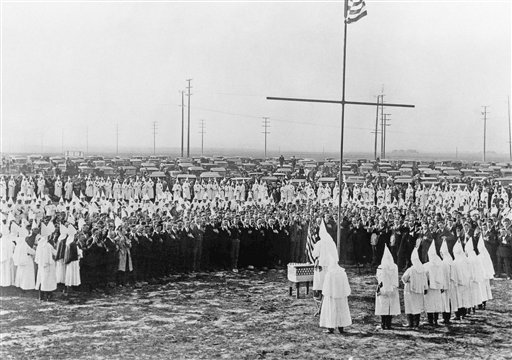The Supreme Court decision in New York ex rel. Bryant v. Zimmerman, 278 U.S. 63 (1928), upheld a misdemeanor conviction of an individual who belonged to the Ku Klux Klan (KKK) knowing that the organization had more than 20 members, required a secret oath, and had not registered with state authorities as required by state law. The Court dismissed due process and equal protection claims by the KKK.
Klan member was held in custody for not registering with the state
Bryant, the Klan member who had not registered, had been held in custody when he sought a habeas corpus proceeding challenging the validity of the statute. The Appellate Division of New York and the court of appeals both rejected his case, which was then accepted by the U.S. Supreme Court.
Court said membership in a secret organization was not protected by the Fourteenth Amendment
Much of the Court’s decision focused on whether the case presented a valid constitutional issue. Writing for the majority, Justice Willis Van Devanter decided that membership in a secret organization was not a privilege or immunity of U.S. citizenship protected by the Fourteenth Amendment. He denied that the due process clause prohibited a state from prescribing and applying “to associations having an oath-bound membership any reasonable regulation calculated to confine their purposes and activities within limits which are consistent with the rights of others and the public welfare.” Van Devanter also dismissed equal protection arguments, pointing out that states had to make reasonable distinctions between organizations like the KKK and fraternal or labor organizations and pointing to the common knowledge that the KKK was a secret organization that relied on terror.
In dissent, Justice James C. McReynolds denied that the case presented a federal constitutional issue.
Later twentieth-century cases, most notably NAACP v. Alabama (1958), have cited First Amendment rights of association to uphold the right of peaceful organizations to keep their membership lists secret when the disclosure of such lists could result in intimidation.
John Vile is a professor of political science and dean of the Honors College at Middle Tennessee State University. He is co-editor of the Encyclopedia of the First Amendment. This article was originally published in 2009.

